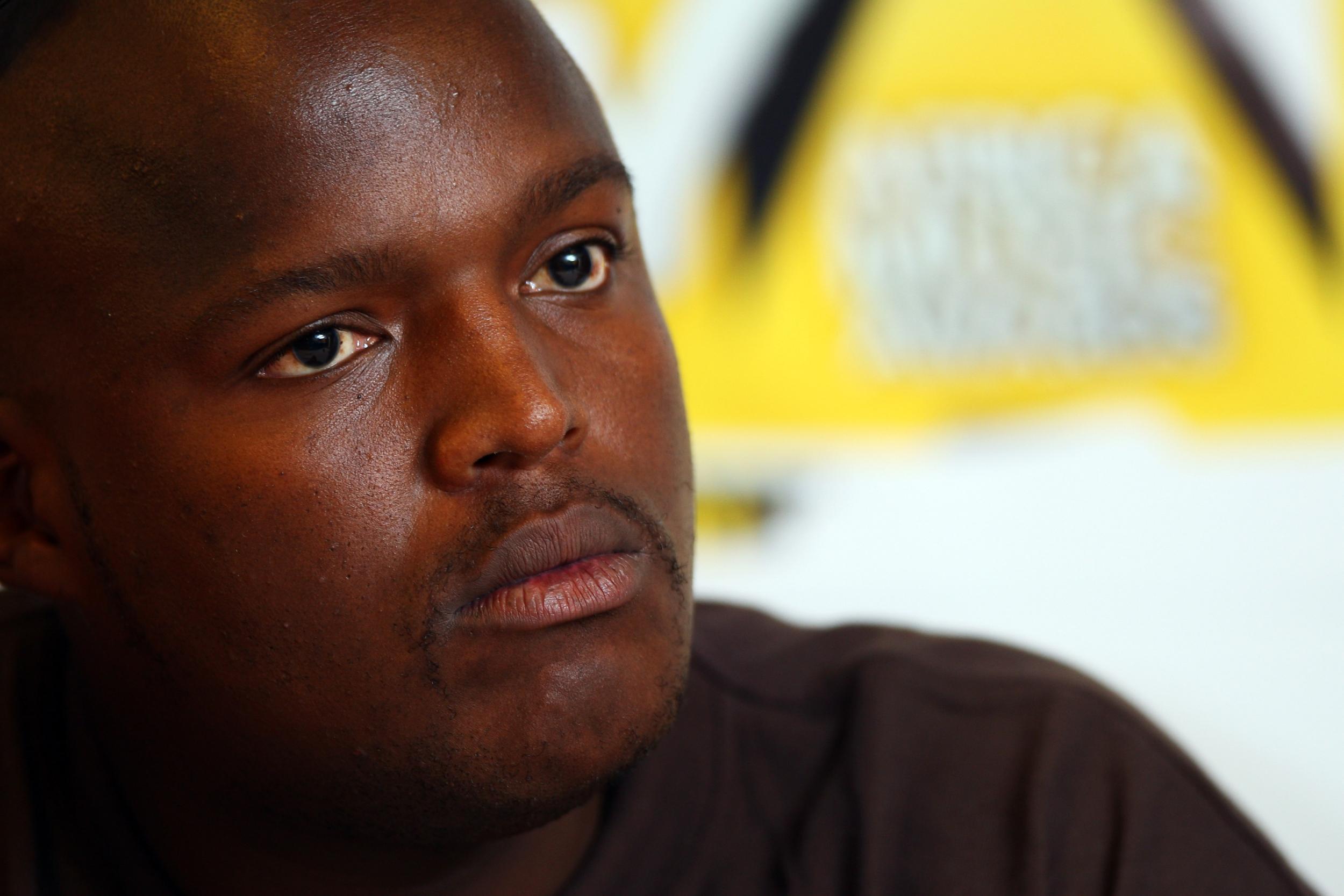
Jabulani Tsambo, who has died aged 38, was the big, charming bear of a talent who helped to pioneer South Africa’s motswako style – in which rappers flit between English and the language of Setswana.
Growing up under apartheid made him keen to challenge the “mentality” that his country was somehow separate from the rest of Africa.
Going by the name Hip Hop Pantsula (“double-H P”), he encouraged the cross-pollination of ideas and styles in the continent, to create a consolidated music industry that would benefit artists and audiences alike. (Pantsula is a dance style that emerged in the Eighties, just as hip hop did in the States.)
In short, he wanted to unite Africa and felt that musicians could lead the way – this was in no small part because of Nigeria’s dominance of the music trade. He feared artists who could not command Nigerians’ fees “might be living hand to mouth”. But he lamented how commercial intentions affected music making.
HHP, or Jabba, as he preferred to be known, was unimpressed by young African rappers who offer crude imitations of their US counterparts. “I love the music but I hate the content,” he said. It was “the same shit: bitches, champagne and cars that they know they can’t afford. These youngsters are so disrespectful.”
Jabba was born in “Maf Town”, his word for Mafikeng, the capital of South Africa’s North West Province, and attended St Alban’s College high school in Pretoria.
He once took part in the BBC documentary series Who Do You Think You Are? and was surprised when researchers found his grandfather moved to South Africa from Mozambique.
It left him feeling like “I actually don’t even know who I am”, he told Okay Africa. “I don’t know my family like that and I don’t know my language as well. So my need for finding out what’s going on in Africa became even more real.”
HHP launched his career in 1997 with a group called Verbal Assassins, which he had formed with his school friends. They were introduced to the producer Chicco Twala and released an album called Party.
The band having separated, he released his own album Introduction in 2000, followed by Maf Town in 2001, O Mang? In 2003 and Motswafrika in 2011.
In 2007 he won South Africa’s third series of Strictly Come Dancing along with his dance partner Haley Bennett and was honoured at his hometown’s inaugural Golden Stars awards. That year, his album Acceptance Speech featured US star Amerie on its first single “Music and Lights”. He also worked with Nas and Omar.

A year later he was nominated in three categories at the MTV Africa Awards. In 2009 he won best video for “Mpitse”.
In 2009 Jabba – who is survived by his wife Lerato Sengadi, whom he married in 2016, his parents, two sisters, his son and nephew – released his seventh studio album Dumela (“Belief”).
HHP also turned his hand to TV presenting, hosting 13 episodes of The Respect Show, a programme which highlighted the lives of young innovators making a positive social impact.
In 2015, a year in which he revealed he suffered depression and had tried to kill himself, he found himself speaking out about xenophobic attacks that had erupted in South Africa.
He had done so before in 2008 when attacks resulted in a number of deaths – immigrants from neighbouring countries, and places such as Somalia and Pakistan, continue to be violently harassed in the country.
This fed into his message for unity – and it was a heartfelt one – HHP walked the walk.
In 2013, joined by his friend DJ Zondi, he trekked by from South Africa to Kenya on the Daraja Walk – daraja means bridge in Swahili. He was trying to “build a bridge over troubled borders”.
Last year he was devastated when DJ Zondi died. “He was my big brother,” he said. “Someone I leaned on.”
Two weeks ago, after a long hiatus, he released an EP called It Feels Good to Be Back.
Showing his humble nature, Jabba once said: “When too many good things in your life happen at once, it either means you have been having a messed up life and you are getting what you have been missing out on, or that life is basically trying to cushion you for the biggest tragedy of your life. One cannot take things for granted and start becoming arrogant.”
Jabulani Tsambo, rapper, born 14 September 1980, died 24 October 2018







